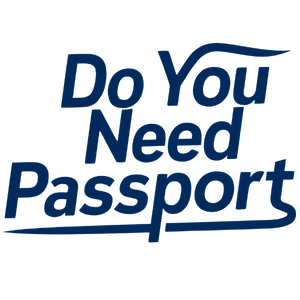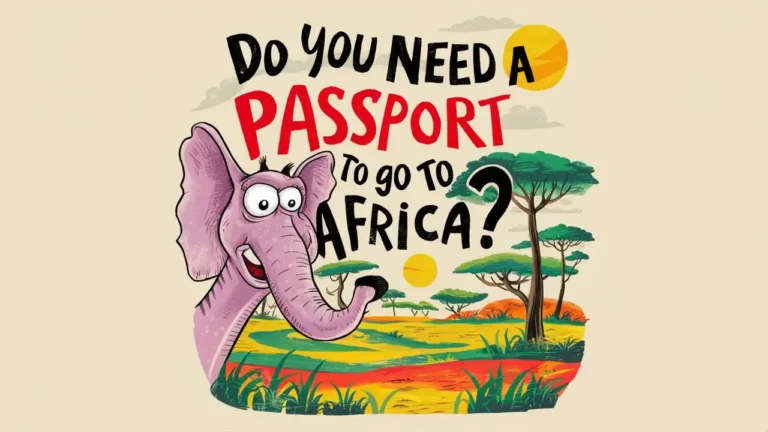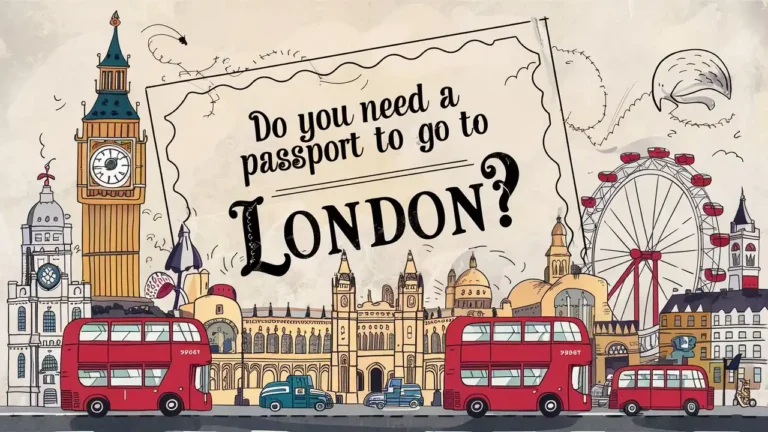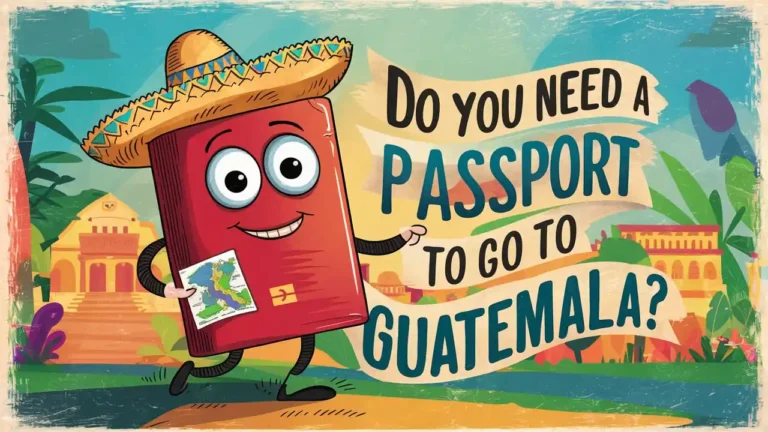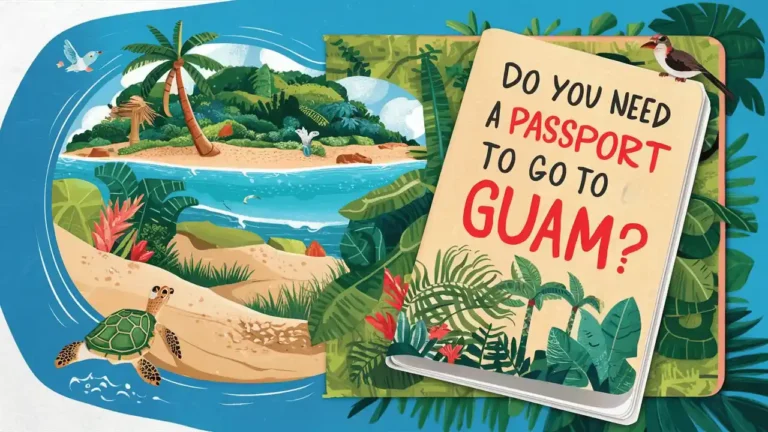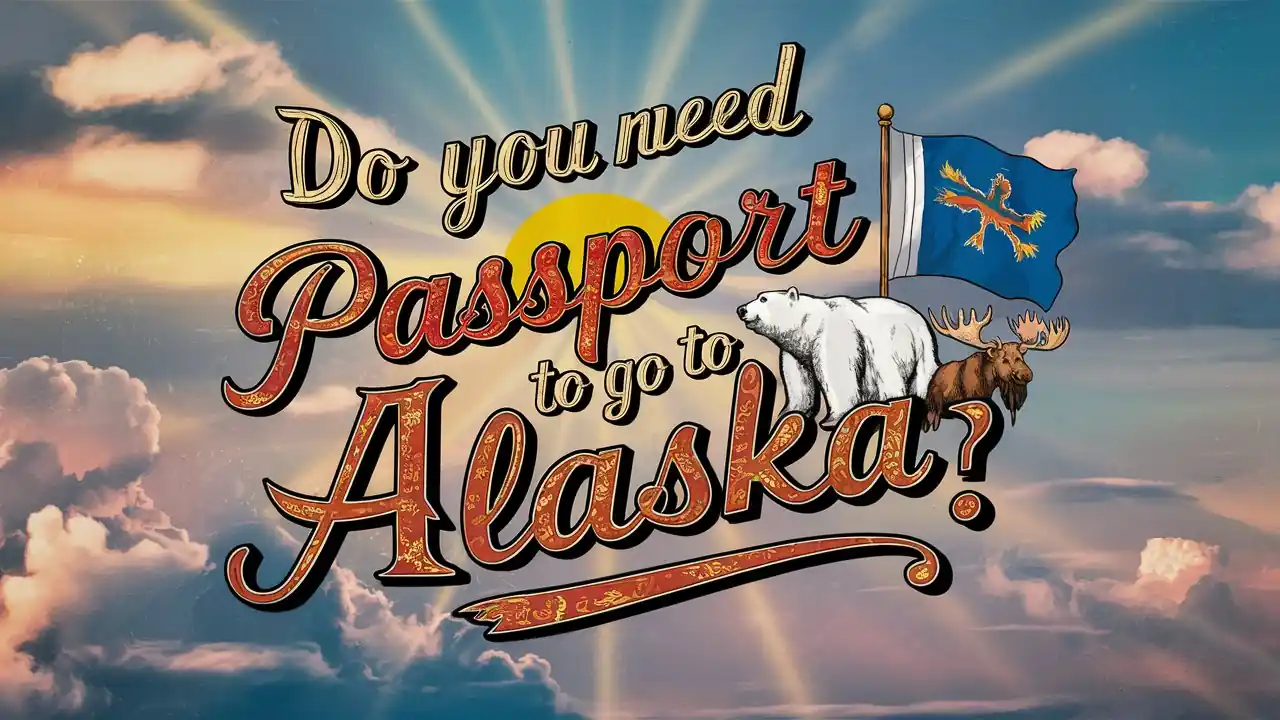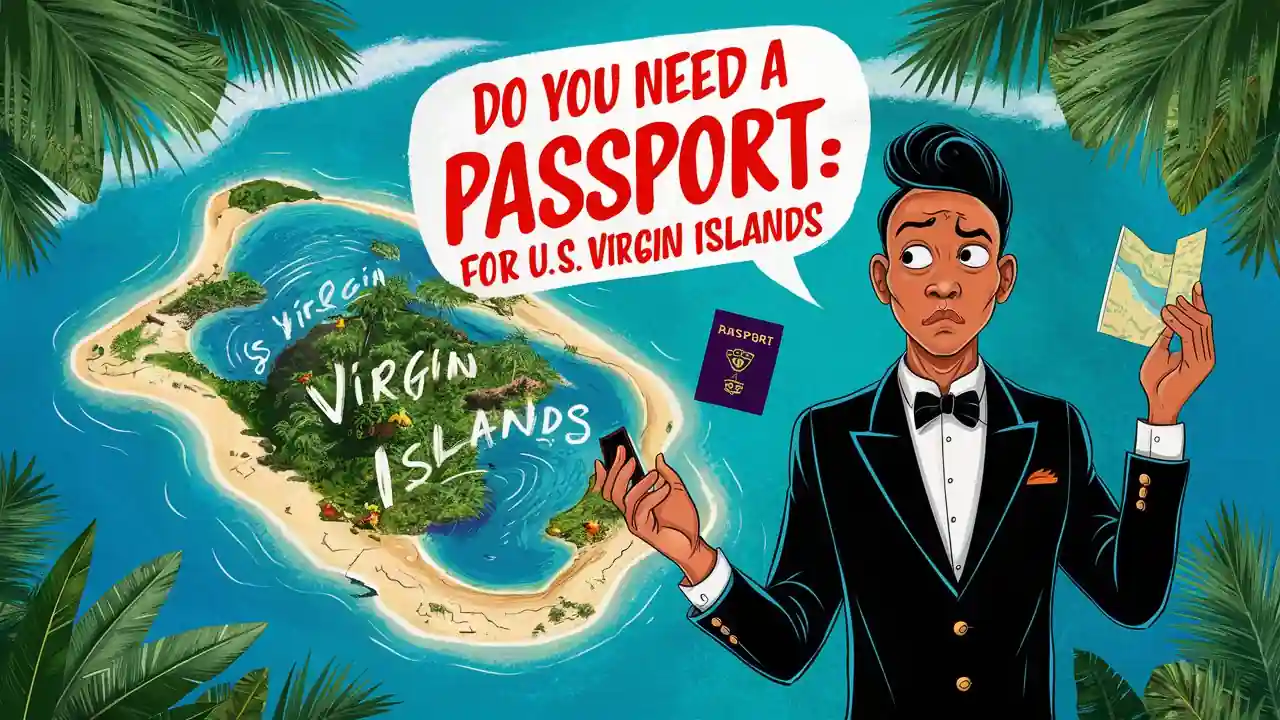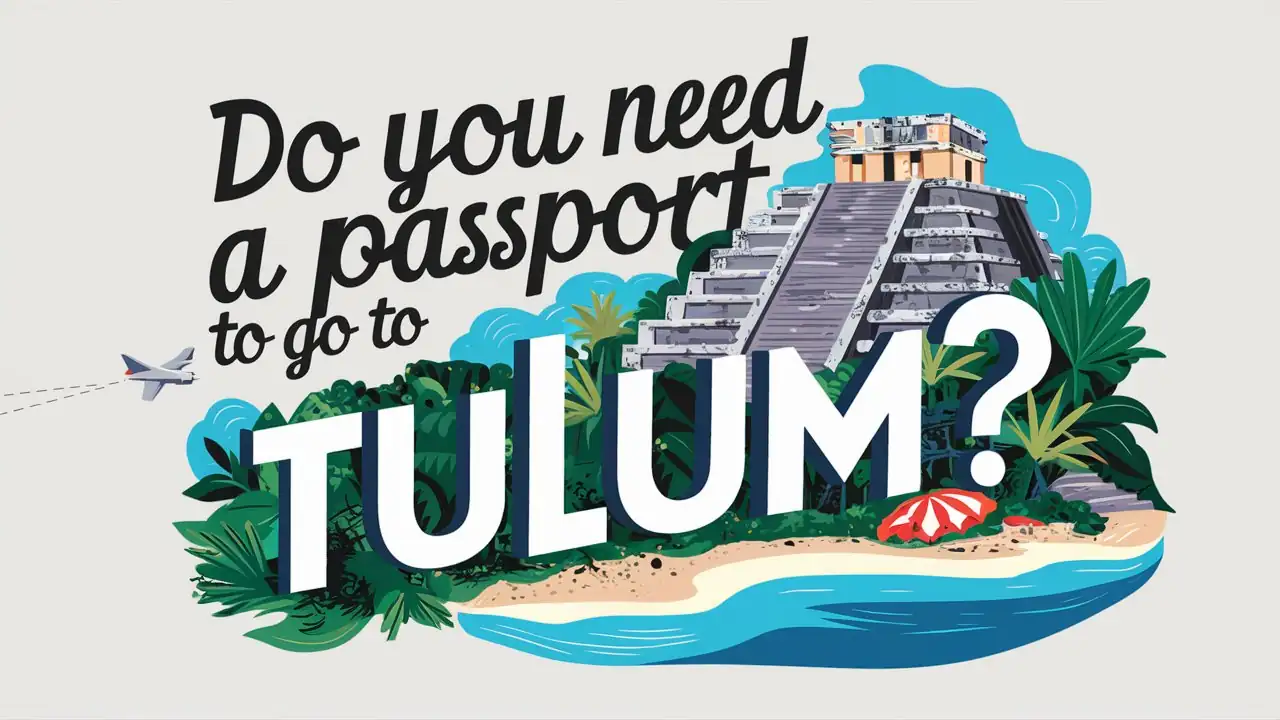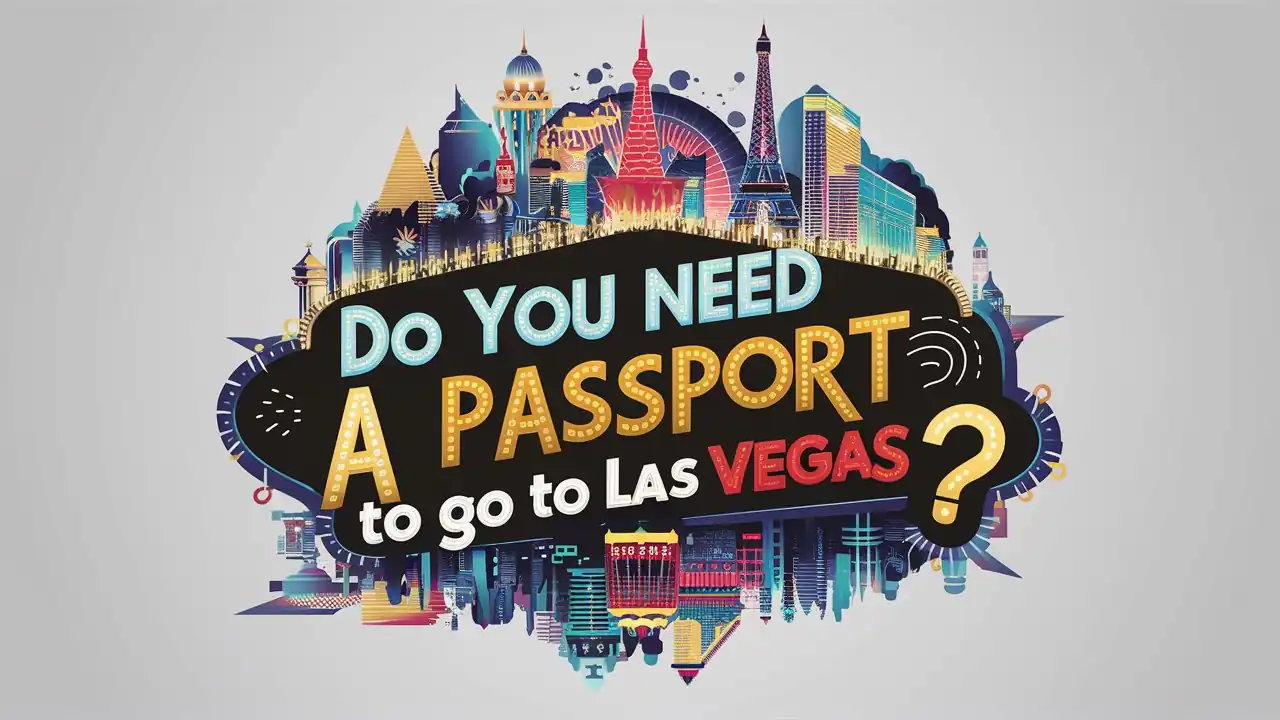Do You Need a Passport to go to Australia? (2024)
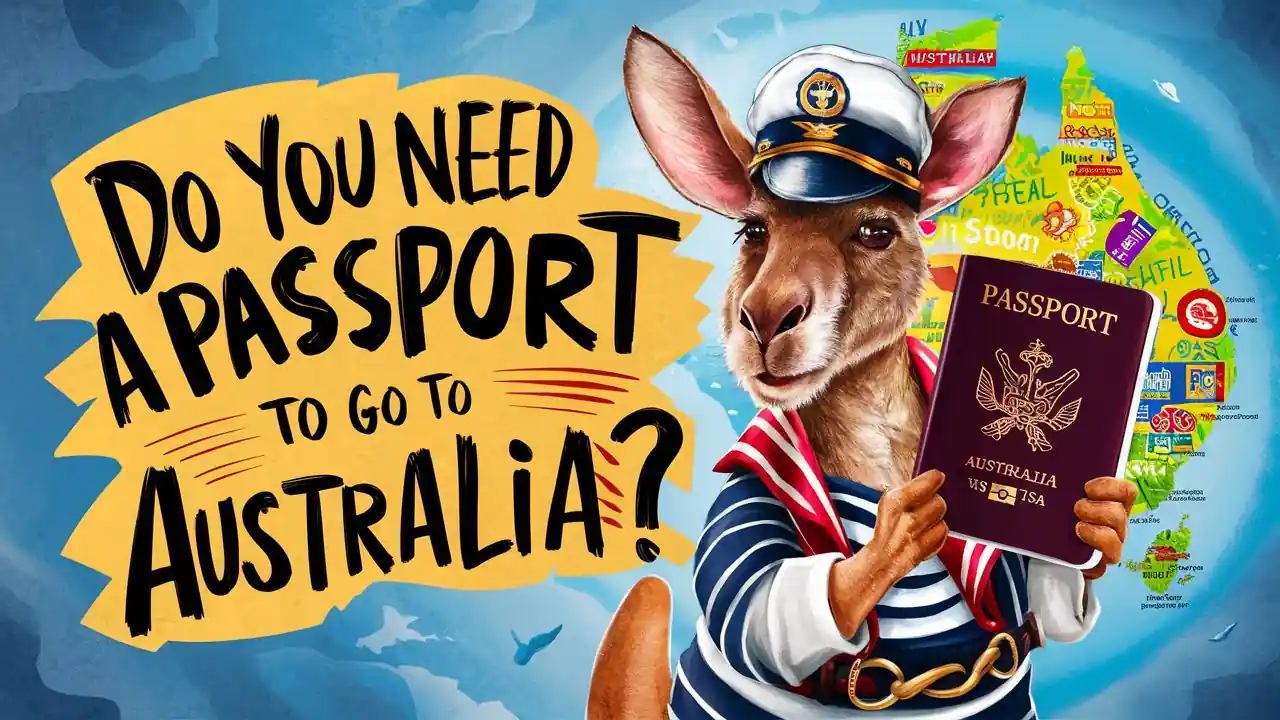
Introduction
Australia, with its stunning landscapes, unique wildlife, and vibrant cities, is a dream destination for many travelers. Whether you’re planning to explore the Great Barrier Reef, wander through the bustling streets of Sydney, or venture into the vast Outback, understanding the entry requirements is crucial for a smooth journey. One of the most common question that arises is whether do you need a passport to go to Australia.
The short answer is yes, all international visitors, regardless of their country of origin, need a valid passport to enter Australia. However, passport requirements are just the beginning of what you need to know about traveling to this diverse continent. In addition to a passport, most visitors will also need to obtain the appropriate visa or travel authorization before their trip. The type of visa required depends on factors such as the purpose of your visit, the length of your stay, and your nationality. This article will guide you through the essential information you need to know about passport and visa requirements for traveling to Australia, helping you prepare for your adventure Down Under.
Do You Need Passport for Australia?
When planning a trip to Australia, one of the most important considerations is whether you need a passport. The answer is straightforward: yes, all travelers entering Australia, regardless of their country of origin, are required to have a valid passport. However, the specific requirements and processes may vary depending on your citizenship and mode of travel. Let’s break down the passport requirements for different categories of travelers.
For U.S. Citizens:
- A valid passport is required for all U.S. citizens traveling to Australia
- The passport must be valid for at least 6 months beyond the planned stay
- An Electronic Travel Authority (ETA) or visa is also required
For Non-U.S. Citizens:
- A valid passport is required for all international visitors to Australia
- The passport must be valid for at least 6 months beyond the planned stay
- Visa requirements vary depending on the country of citizenship
Traveling by Land or Sea (For U.S. Citizens):
- Not applicable as there is no land border with Australia
- Cruise passengers must have a valid passport and appropriate visa or ETA
Traveling by Land or Sea (For Non-U.S. Citizens):
- Not applicable as there is no land border with Australia
- All sea arrivals require a valid passport and appropriate visa
Children Under 16:
- All children, regardless of age, must have their own valid passport
- The same visa or ETA requirements apply as for adults
Closed-Loop Cruises:
- Not applicable for Australia as it is not part of any closed-loop cruise itineraries
Who Does Not Need a Passport for Australia?:
- Australian citizens returning to Australia do not need a passport but must prove their citizenship
- New Zealand citizens can enter Australia on a Special Category visa (subclass 444)
For locals:
- Australian citizens do not need a passport for domestic travel within Australia
- A valid government-issued photo ID is sufficient for domestic flights
Remember, while passport requirements are straightforward, visa requirements can be complex and vary based on the purpose and duration of your visit. It’s always best to check the latest requirements with the Australian Department of Home Affairs or your nearest Australian embassy or consulate before planning your trip.
Do You Need a Visa to go to Australia?
Traveling to Australia requires careful planning, and understanding visa requirements is a crucial part of this process. Whether you need a visa to enter Australia depends on your nationality, the purpose of your visit, and the duration of your stay. This article provides an overview of Australia’s visa requirements for various types of travelers.
For U.S. Citizens:
- U.S. citizens need a visa to enter Australia.
- Most tourists and business visitors can apply for an Electronic Travel Authority (ETA) (subclass 601).
- The ETA allows multiple entries for up to 3 months per visit within a 12-month period.
- It can be applied for online and is usually granted instantly.
For Non-U.S. Citizens:
- Visa requirements vary depending on nationality.
- Many countries are eligible for the ETA or eVisitor (subclass 651) visa.
- Citizens of some countries may need to apply for a Visitor visa (subclass 600).
- Always check the specific requirements for your nationality on the Australian Department of Home Affairs website.
Visa Waiver Program:
- Australia does not participate in the U.S. Visa Waiver Program.
- All visitors, regardless of nationality, need some form of visa to enter Australia.
Business and Work Visas:
- For business visits, the ETA or eVisitor may be sufficient for short stays.
- For work purposes, specific work visas are required, such as the Temporary Skill Shortage visa (subclass 482) or Working Holiday visa (subclass 417 or 462).
Student Visas:
- International students need a Student visa (subclass 500).
- This requires acceptance into an Australian educational institution and meeting specific criteria.
Transit Visas:
- Some travelers may be eligible for a Transit visa (subclass 771) for stays up to 72 hours.
- Many nationalities can transit through Australia without a visa if they meet certain conditions.
Long-Term Stay Visas:
- For stays longer than 3 months or for purposes other than tourism or short-term business, specific visas are required.
- These may include work visas, student visas, or family visas, depending on the circumstances.
It’s important to note that visa requirements can change, and the information provided here is general. Always check the most current requirements on the official Australian Department of Home Affairs website before planning your trip to Australia. Additionally, even if you have the appropriate visa, you must meet other entry requirements, such as having a valid passport, return ticket, and sufficient funds for your stay.
Why Visit Australia? Let Me Tell You!
Australia, a vast and diverse continent, offers an incredible array of experiences for travelers. Here’s why this unique destination should be at the top of your travel bucket list:
- Iconic Natural Wonders
- Great Barrier Reef, the world’s largest coral reef system
- Uluru (Ayers Rock), a massive sandstone monolith in the Outback
- The Twelve Apostles along the Great Ocean Road
- Ancient Daintree Rainforest in Queensland
- Unique Wildlife
- Kangaroos, koalas, and wallabies in their natural habitats
- Diverse marine life including whales, dolphins, and colorful fish
- Exotic birds like emus, kookaburras, and cockatoos
- Opportunity to see Tasmanian devils in Tasmania
- Stunning Beaches
- Over 10,000 beaches, including famous Bondi and Whitehaven
- World-class surfing spots like Bells Beach and Byron Bay
- Pristine coastlines perfect for swimming, snorkeling, and sunbathing
- Vibrant Cities
- Sydney with its iconic Opera House and Harbour Bridge
- Melbourne’s eclectic arts scene and coffee culture
- Brisbane’s subtropical climate and nearby Gold Coast
- Perth’s laid-back atmosphere and beautiful Kings Park
- Rich Indigenous Culture
- Ancient Aboriginal art and Dreamtime stories
- Cultural experiences like didgeridoo performances and bush tucker tours
- Important sites like Kakadu National Park and the Kimberley region
- World-Class Wine Regions
- Barossa Valley in South Australia
- Hunter Valley in New South Wales
- Margaret River in Western Australia
- Yarra Valley in Victoria
- Outdoor Adventures
- Hiking in the Blue Mountains or Cradle Mountain
- Snorkeling or diving at the Great Barrier Reef
- Surfing along the Gold Coast
- Four-wheel driving in the rugged Outback
- Unique Landscapes
- The Red Centre’s vast desert expanses
- Tropical North Queensland’s lush rainforests
- Tasmania’s pristine wilderness areas
- The Pinnacles Desert in Western Australia
- Friendly Locals
- Famous Australian hospitality and laid-back attitude
- Opportunity to experience the unique Aussie culture and slang
- Culinary Delights
- Fresh seafood including Moreton Bay bugs and barramundi
- Iconic Australian foods like Vegemite, Tim Tams, and meat pies
- Multicultural cuisine in major cities
- Bush tucker experiences featuring native ingredients
- Spectacular Road Trips
- The Great Ocean Road in Victoria
- The Pacific Coast drive from Sydney to Brisbane
- The Gibb River Road in the Kimberley region
- Tasmania’s East Coast drive
- World-Class Sporting Events
- Australian Open tennis tournament
- Melbourne Cup horse race
- Australian Football League (AFL) matches
- Cricket matches at the iconic Melbourne Cricket Ground
- Island Getaways
- The Whitsunday Islands in Queensland
- Kangaroo Island in South Australia
- Rottnest Island in Western Australia
- Lord Howe Island in New South Wales
- Unique Accommodations
- Luxury eco-lodges in pristine wilderness areas
- Underground hotels in Coober Pedy
- Tree house stays in tropical rainforests
- Glamping experiences in the Outback
Australia offers an unparalleled mix of natural wonders, wildlife encounters, cultural experiences, and adventure opportunities. From the iconic landmarks of its cities to the vast expanses of the Outback, Australia promises a journey filled with unforgettable moments and diverse experiences. Whether you’re seeking relaxation on pristine beaches, immersion in ancient cultures, or thrilling outdoor adventures, Australia has something for every traveler.
Planning Your Australia Adventure
Once you’ve confirmed your passport and visa requirements for Australia, it’s time to start planning your exciting Down Under adventure. Here are some key tips to ensure your trip to this vast and diverse country is unforgettable:
When to Visit
- December to February is summer with warm weather but higher prices
- March to May and September to November offer mild temperatures and fewer crowds
- June to August is winter, ideal for skiing in the south and visiting the tropical north
Where to Stay
- Sydney for iconic landmarks, beaches, and vibrant city life
- Melbourne for culture, food, and nearby natural attractions
- Cairns as a gateway to the Great Barrier Reef and rainforests
- Choose from luxury hotels, budget-friendly hostels, or unique bush lodges
Getting There
- Fly into major international airports in Sydney, Melbourne, Brisbane, or Perth
- Many airlines offer direct flights from various countries
- Consider booking flights that align with your itinerary to minimize jet lag
Getting Around
- Rent a car for flexibility (remember, driving is on the left side)
- Domestic flights for covering large distances quickly
- Train services for scenic long-distance travel
- Public transport in cities, including buses, trains, and trams
What to Do
- Explore iconic landmarks like the Sydney Opera House and Uluru
- Snorkel or dive at the Great Barrier Reef
- Visit wildlife sanctuaries to see kangaroos and koalas
- Take a road trip along the Great Ocean Road
- Experience Aboriginal culture through guided tours and art galleries
- Hike in national parks like the Blue Mountains or Daintree Rainforest
Where to Eat and Drink
- Try Australian specialties like meat pies, Vegemite, and Tim Tams
- Enjoy fresh seafood at beachside restaurants
- Experience world-class coffee culture in Melbourne
- Visit wineries in regions like the Barossa Valley or Hunter Valley
- Sample bush tucker on Aboriginal-led food tours
What to Pack
- Clothing suitable for your destinations and activities
- Sun protection including sunscreen, hat, and sunglasses
- Comfortable walking shoes for outdoor adventures
- Swimwear for beaches and the Great Barrier Reef
- Adapter for Australian power outlets (230V, 50Hz)
Additional Tips
- The official currency is the Australian Dollar
- English is the primary language
- Tipping is not mandatory but appreciated for good service
- Be aware of wildlife safety, especially in rural and coastal areas
- Respect Aboriginal lands and cultural sites
By planning ahead and considering these factors, you can make the most of your Australian adventure. With its stunning natural wonders, unique wildlife, rich indigenous culture, and vibrant cities, Australia offers an incredible diversity of experiences for visitors.
Best Things to Do in Australia – Get Ready for an Adventure!
Australia, a vast continent with diverse landscapes and vibrant culture, offers an array of unforgettable experiences. Here’s a list of must-do activities to make your Australian adventure truly remarkable:
🏖️ Beach Bliss
- Relax on the iconic Bondi Beach in Sydney
- Surf at Gold Coast’s famous beaches
- Discover the pristine Whitehaven Beach in the Whitsundays
- Snorkel at the Great Barrier Reef
🏛️ Cultural Wonders
- Explore the Sydney Opera House
- Visit the National Gallery of Australia in Canberra
- Tour the Melbourne Cricket Ground
- Discover Aboriginal art at Uluru-Kata Tjuta Cultural Centre
🌳 Natural Attractions
- Witness the majesty of Uluru (Ayers Rock)
- Hike through the Blue Mountains
- Explore the ancient Daintree Rainforest
- Take a scenic drive along the Great Ocean Road
🦘 Wildlife Encounters
- See kangaroos in the wild at Kangaroo Island
- Cuddle a koala at Lone Pine Koala Sanctuary in Brisbane
- Spot crocodiles in Kakadu National Park
- Swim with whale sharks at Ningaloo Reef
🛥️ Water Adventures
- Sail through the Whitsunday Islands
- Go white-water rafting on the Tully River
- Enjoy a sunset dinner cruise in Sydney Harbour
- Try surfing at Byron Bay
🍽️ Culinary Delights
- Savor fresh seafood at Sydney Fish Market
- Experience a wine tasting in the Barossa Valley
- Try authentic bush tucker on an Aboriginal food tour
- Enjoy a beachside barbecue with locals
🎭 Cultural Experiences
- Attend the Melbourne International Comedy Festival
- Visit during Vivid Sydney for spectacular light shows
- Experience the colorful Mardi Gras parade in Sydney
- Enjoy an outdoor cinema experience in Perth
🐠 Underwater Wonders
- Dive or snorkel the Great Barrier Reef
- Swim with sea lions at Baird Bay
- Explore the underwater world of the Great Ocean Road
- Take a glass-bottom boat tour at the Coral Coast
🌅 Scenic Viewpoints
- Watch the sunrise at Cape Byron Lighthouse
- Enjoy panoramic views from Sydney Tower Eye
- Visit the Twelve Apostles along the Great Ocean Road
- Take in the coastal scenery from Kings Park in Perth
🏙️ City Adventures
- Shop at Queen Victoria Market in Melbourne
- Visit the iconic Luna Park in Sydney
- Enjoy a coffee in one of Melbourne’s famous laneways
- Take a guided tour of Parliament House in Canberra
🌿 Outback Experiences
- Take a camel ride in the Red Centre
- Explore the underground town of Coober Pedy
- Witness the Field of Light installation at Uluru
- Take a scenic flight over the Bungle Bungle Range
Whether you’re a nature enthusiast, culture buff, foodie, or adventure seeker, Australia has something for everyone. Remember to pace yourself given the vast distances between attractions. With its stunning landscapes, unique wildlife, rich indigenous culture, and vibrant cities, Australia promises an adventure that will leave you with unforgettable memories!
Currency, Language, Timezone, and Other Important Information
Before you plan your trip to Australia, here’s some essential information to keep in mind:
Currency:
- Official currency: Australian Dollar (AUD)
- Major credit cards widely accepted
- ATMs readily available in urban areas and tourist spots
Language:
- Official language: English
- Many locals also speak various community languages due to Australia’s multicultural population
Timezone:
- Australia spans three main time zones:
- Australian Eastern Standard Time (AEST): UTC+10
- Australian Central Standard Time (ACST): UTC+9:30
- Australian Western Standard Time (AWST): UTC+8
- Daylight Saving Time observed in some states and territories
Climate and Weather:
- Varies greatly due to the country’s size
- Generally temperate in the south, tropical in the north
- Summer: December to February
- Winter: June to August
- Average temperatures vary by region and season
- Bushfire season typically from October to March
Entry Requirements:
- Valid passport (at least 6 months beyond intended stay)
- Valid Australian visa or Electronic Travel Authority (ETA)
- New Zealand citizens can enter with a valid passport under the Trans-Tasman Travel Arrangement
Additional Documents:
- Completed Incoming Passenger Card
- Return or onward ticket
- Proof of sufficient funds
- Travel insurance recommended
COVID-19 Considerations:
- Check latest travel advisories and entry requirements
- Digital Passenger Declaration (DPD) may be required
- Follow local guidelines for masks and social distancing
- Be prepared for potential changes in restrictions
Will My Phone Work in Australia?:
- Most international phones will work on Australian networks
- Check with your provider about international roaming charges
- Local SIM cards available for cheaper data rates
- Free Wi-Fi available in many public areas and accommodations
Electricity:
- 230/240 volts, 50 Hz
- Type I power outlets (three flat pins in a triangular pattern)
- Voltage converters needed for 110/120 volt devices
Tipping:
- Not customary or expected, but appreciated for exceptional service
- Round up taxi fares if desired
- 10% tip in restaurants for outstanding service
Transportation:
- Driving on the left side
- Public transportation available in major cities
- Car rental popular for exploring rural areas
- Ride-sharing services available in urban centers
Drinking Age:
- Legal drinking age: 18
Safety:
- Generally safe, but take normal precautions
- Be cautious of wildlife and natural hazards
- Follow beach safety guidelines and swim between the flags
Local Customs:
- Casual dress is generally acceptable
- Respect Aboriginal and Torres Strait Islander cultures
- Smoking banned in many public places
Opening Hours:
- Most shops open daily, often 9:00 am to 5:00 pm
- Extended hours in some areas, especially on Thursdays or Fridays
- Many businesses closed on public holidays
Health and Safety:
- High-quality healthcare system
- Travel insurance strongly recommended
- Use sunscreen and stay hydrated
- Be aware of unique wildlife and follow safety guidelines
Remember to check for updates before your trip, especially regarding COVID-19 regulations and entry requirements. This information is current as of my last update in April 2024, but policies can change rapidly.
Volunteering in Australia – The Best Way to Truly Experience
Volunteering in Australia offers a unique opportunity to immerse yourself in the country’s diverse culture, contribute to meaningful projects, and create lasting memories. By dedicating your time and skills to local organizations, you’ll gain a deeper understanding of Australia’s communities, environment, and heritage while making a positive impact.
Why Volunteer in Australia?
- Cultural immersion: Work alongside locals and experience Australia’s multicultural society firsthand.
- Environmental conservation: Contribute to preserving Australia’s unique ecosystems and wildlife.
- Skill development: Gain new skills and experiences that can benefit your personal and professional life.
- Community connection: Build relationships with locals and fellow volunteers from around the world.
- Sustainable tourism: Support responsible travel by giving back to the communities you’re visiting.
Top 6 Volunteering Opportunities in Australia
- Conservation Volunteers Australia
- Focus: Environmental conservation and wildlife protection
- Activities: Tree planting, habitat restoration, wildlife surveys, and bush regeneration
- Website: https://conservationvolunteers.com.au/
- WIRES (Wildlife Information, Rescue and Education Service)
- Focus: Wildlife rescue and rehabilitation
- Activities: Caring for injured and orphaned native animals, assisting with rescues, and community education
- Website: https://www.wires.org.au/
- The Smith Family
- Focus: Education support for disadvantaged children
- Activities: Mentoring, tutoring, and assisting with educational programs
- Website: https://www.thesmithfamily.com.au/
- Australian Red Cross
- Focus: Humanitarian aid and community support
- Activities: Disaster relief, community services, and support for vulnerable populations
- Website: https://www.redcross.org.au/
- Clean Up Australia
- Focus: Environmental cleanup and waste reduction
- Activities: Participating in community clean-up events, environmental education, and waste management initiatives
- Website: https://www.cleanup.org.au/
- OzHarvest
- Focus: Food rescue and hunger relief
- Activities: Collecting and distributing surplus food, nutrition education, and cooking programs
- Website: https://www.ozharvest.org/
How to Get Started
- Research: Explore the organizations listed above and find one that aligns with your interests and skills.
- Contact: Reach out to the organization directly to inquire about current volunteer opportunities and requirements.
- Plan: Determine the length of your stay and any necessary travel arrangements.
- Prepare: Familiarize yourself with Australia’s culture, climate, and any specific requirements for your chosen volunteer program.
Important Considerations
- Visa requirements: Check if you need a special visa for volunteering activities. Some volunteer work may be permitted on a tourist visa, but longer-term or formal positions may require a specific visa.
- Time commitment: Some organizations may require a minimum time commitment.
- Costs: While volunteering is unpaid, some programs may charge fees for accommodation or training.
- Health and safety: Ensure you have appropriate travel insurance and any necessary vaccinations.
- Working with Vulnerable People Check: Some volunteer roles, especially those working with children or vulnerable adults, may require a background check.
By volunteering in Australia, you’ll not only enrich your travel experience but also contribute to the country’s sustainable development and community well-being. It’s an opportunity to create meaningful connections, learn about Australia’s unique challenges and strengths, and leave a positive impact on the places you visit.
Conclusion
In conclusion, a valid passport is an essential requirement for most international travelers visiting Australia. Regardless of your nationality or the purpose of your visit, you’ll need a passport with at least six months validity beyond your planned stay. This requirement applies to tourists, business travelers, and even those transiting through Australian airports. Along with your passport, you’ll also need to obtain the appropriate visa or travel authorization, such as an Electronic Travel Authority (ETA) or eVisitor visa, depending on your country of citizenship and the nature of your visit.
While the passport requirement is straightforward, it’s crucial to remember that entry into Australia involves more than just having a valid passport. You’ll need to comply with various other entry requirements, including having a valid visa, meeting health and character requirements, and potentially providing additional documentation such as proof of funds or onward travel. It’s always advisable to check the latest information from official Australian government sources before planning your trip, as requirements can change.
By ensuring you have all the necessary documentation, including your passport, you’ll be well-prepared for a smooth entry into Australia and can focus on enjoying all that this diverse and beautiful country has to offer.
People Also Ask (FAQs)
Q: Can US citizens travel to Australia without a passport?
A: No, US citizens cannot travel to Australia without a passport. A valid passport is required for all international visitors, including US citizens, entering Australia.
Q: How long does your passport need to be valid for Australia?
A: Your passport needs to be valid for at least six months beyond your planned stay in Australia. This is a standard requirement for entry into the country.
Q: Do I need a visa to visit Australia as a tourist?
A: Yes, most international visitors, including tourists, need a valid visa to enter Australia. US citizens and many other nationalities can apply for an Electronic Travel Authority (ETA) or eVisitor visa online.
Q: Can I use my driver’s license to travel to Australia?
A: No, you cannot use your driver’s license to travel to Australia from another country. A valid passport is the primary form of identification required for international travel to Australia.
Q: Is it possible to enter Australia with an expired passport?
A: No, you cannot enter Australia with an expired passport. Your passport must be valid for the duration of your stay and, in most cases, for at least six months beyond your planned departure date from Australia.
Q: Do children need a passport to travel to Australia?
A: Yes, children of all ages, including infants, need their own valid passport to travel to Australia. Family or group passports are not accepted.
Q: Can I travel to Australia with a passport card?
A: No, you cannot travel to Australia with a passport card. A passport book is required for international air travel to Australia. Passport cards are only valid for land and sea travel between the US and certain countries, which does not include Australia.
Q: How long can I stay in Australia as a tourist?
A: The length of stay allowed depends on the type of visa you have. Most tourist visas, including the ETA and eVisitor, allow for stays of up to 3 months per visit. Always check the conditions of your specific visa for accurate information.
